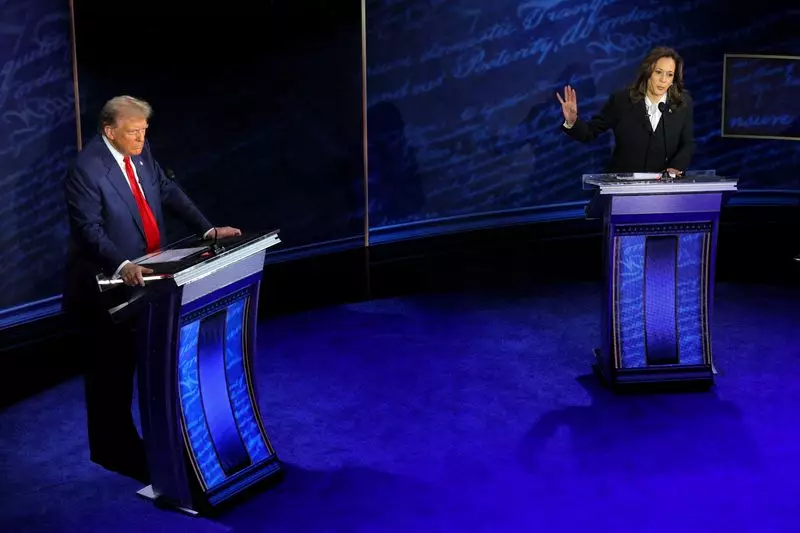The political landscape in the United States is often tumultuous, and this year, with the upcoming presidential election on November 5, economic stakeholders find themselves in a quandary. A recently published survey reveals that nearly a third of chief financial officers (CFOs) are reconsidering their investment strategies in light of the uncertainties surrounding the electoral process. This hesitation poses potential short-term challenges for economic growth and may shape the trajectory of business investments throughout the country.
A collaborative survey conducted by the Federal Reserve Banks of Atlanta and Richmond, alongside Duke University’s Fuqua School of Business, highlights the significant impact that political uncertainty is exerting on corporate investment plans. Specifically, 21% of 479 CFO respondents indicated that they had chosen to delay investments due to uncertainties about the upcoming elections. Moreover, 15% reported scaling back their investment plans, suggesting an overall impact on 30% of firms surveyed. Conversely, 64% indicated that election-related variables had not affected their investment strategies.
The data sheds light on the contrasting attitudes among CFOs. For those feeling the pinch of uncertainty, optimism appears waning. According to Atlanta Fed economist Brent Meyer and survey director Daniel Weitz, firms grappling with concerns about election-related risks are less inclined to invest in enhancing operations – whether that pertains to expanding capacity or maintaining existing infrastructure. Rather, their focus appears to shift toward investments aimed solely at cost reductions.
Despite these apprehensions, a noteworthy proportion of CFOs maintain a positive outlook on their companies’ prospects. The survey shows that 69% of respondents remain bullish about their own operations, while 60% express optimism regarding the broader U.S. economy. This duality reflects a certain resilience within corporate America, indicating that while some CFOs may be shielding their wallet due to uncertainty, others predict a recovery and continue to plan for growth.
Nevertheless, it is essential to note that the optimism shared by a portion of CFOs does not extend to all situations. Firms most affected by political uncertainty exhibit a cautious approach, often favoring risk-averse strategies. They are less likely to invest for growth and instead, tend to focus on measures that could cut costs. This illustrates a divergence in corporate strategies prompted by external political factors.
The Political Landscape: Underlying Concerns
The survey did not delve into how CFOs perceive the candidates—Vice President Kamala Harris representing the Democratic Party and former President Donald Trump, the Republican challenger. However, it unveiled broader concerns over regulatory and monetary policies. Approximately 60% of CFOs pinpointed regulatory policy as a primary concern, with monetary policy following closely behind at around 59%. Additionally, 54% referenced corporate tax policy as a significant consideration, suggesting that the backdrop of the electoral contest causes greater scrutiny of potential shifts in policy that could impact their operations.
The shift in CFO sentiment appears correlated with the Federal Reserve’s initiatives and its intricate approach to managing interest rates amidst persistent inflationary concerns. As corporate executives navigate through this challenging landscape, monetary policy remains a focal point amid ongoing debates and uncertainty surrounding the elections.
As the U.S. heads into a contentious election, corporate America finds itself at a crossroads. The hesitation reflected in investment plans reveals a broader story—a microcosm of how political uncertainty can create ripples across the economic landscape. While a subset of CFOs exhibits optimism regarding their future outlooks, a larger swath appears to be repositioning its strategies in the wake of potential electoral outcomes.
Understanding this dynamic becomes essential for stakeholders across the board as they navigate the intersection of politics and economics. As firms grapple with the uncertainties leading up to November, the decisions made by CFOs now may shape the investment landscape for years to come. Thus, as the election looms, the implications of these investment strategies merit close attention, heralding a critical period for economic growth amidst political complexity.

